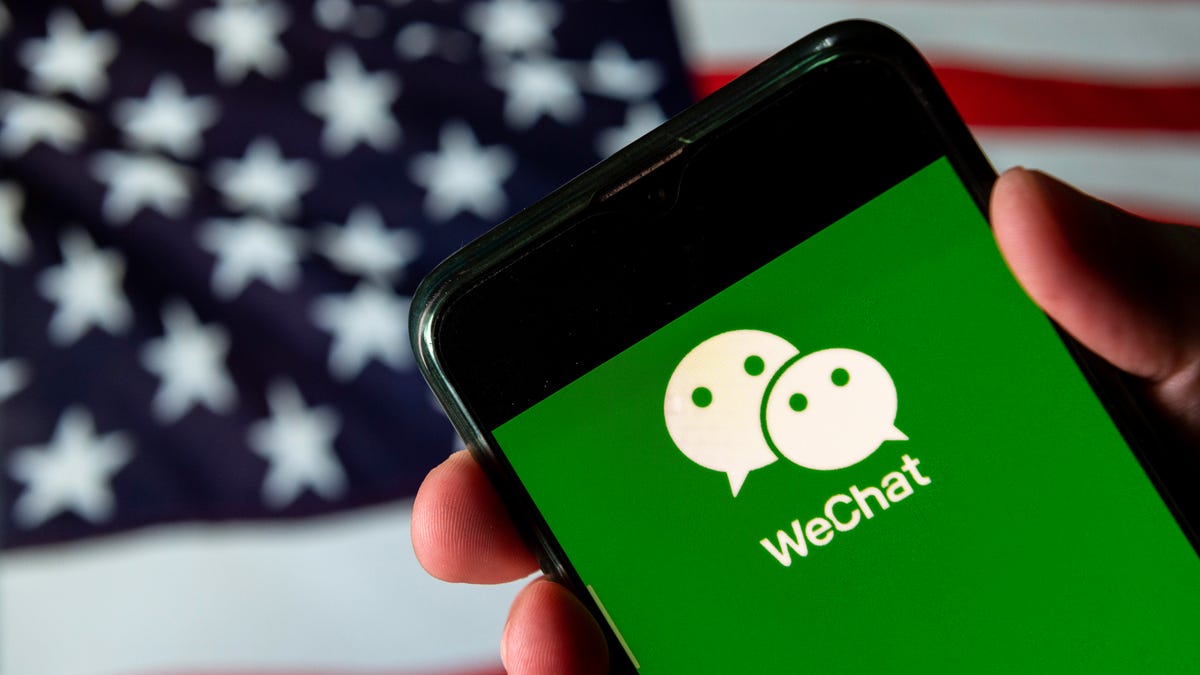Judge temporarily blocks Trump's ban on WeChat
The ban would have required Apple and Google to remove the chat app from their stores by Sunday night.

WeChat ban temporarily halted by judge's order.
A US judge early Sunday temporarily blocked a Trump administration order requiring Apple and Google to remove the Chinese-owned messaging app WeChat from their app stores.
US Magistrate Judge Laurel Beeler in San Francisco said in an order that WeChat users who filed a lawsuit "have shown serious questions going to the merits of the First Amendment claim, the balance of hardships tips in the plaintiffs' favor."
The ruling came two days after the Trump administration announced that downloads of WeChat and fellow Chinese-owned app TikTok would be prohibited in the US after Sunday night. US Commerce Secretary Wilbur Ross said the bans were designed to protect American consumers and businesses from "the threats of the Chinese Communist Party."
Beeler's ruling came as part of a lawsuit filed in August by a group of WeChat users who aren't affiliated with the company behind the app and argued that President Donald Trump's ban is unconstitutional.
Trump issued sweeping bans on Aug. 6 against WeChat and fellow Chinese tech app TikTok, citing concerns that data that TikTok and WeChat collect "vast swaths of information" from their US users. There is also concern that Chinese companies may be unable to reject requests from China's ruling Communist Party to access that data. Often cited by critics of China is a 2017 law that requires Chinese companies and citizens to comply with all matters of national security.
The user group's lawsuit sought a restraining order against the executive order, calling it "vaguely worded" and saying it fails to provide evidence that WeChat poses a threat to US national security. Beeler appeared to agree with that argument in her order.
"While the general evidence about the threat to national security related to China (regarding technology and mobile technology) is considerable, the specific evidence about WeChat is modest." Beeler wrote.
"Certainly the government's overarching national-security interest is significant. But on this record -- while the government has established that China's activities raise significant national security concerns -- it has put in scant little evidence that its effective ban of WeChat for all U.S. users addresses those concerns.," she wrote.
WeChat owner Tencent declined to comment. The White House didn't respond to a request for comment.

